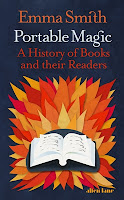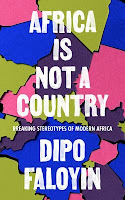| >> Read all Thomas's reviews. | |
No-One Is Talking About This by Patricia Lockwood {Reviewed by THOMAS} Is there such a thing as claustrophobia in your own skin, he wondered. He thought about the possibility of a collective mind, a species mind, but why stop at species, a global mind, trapped and compartmentalised into individuals. No wonder we all feel trapped in ourselves, he thought. No wonder we do everything we can, even the most stupid things, to join ourselves back up. The most inane things. And yet, and yet, we are all the time assailed by this collective mind, he thought, how do we protect ourselves from it, and from everyone else that comprises it, how do we hold back even a little space within ourselves to be just ourselves, if there is such a thing? Do we have, or have we ever had, anything that could pass for authenticity, anyway, he wondered, and would we know whether we had it or had lost it, or not? In the age of internet hyperconnectivity, so to call it, should we fear or celebrate that so much of our thinking is done for us outside our head, how liberating, how useful, how frightening, but has this not anyway always been the case, even for our ancestors’ ancestors, is this not where the collective mind came from, after all? Too many question marks, too many superfluous words, he thought. Let’s get on. Patricia Lockwood’s novel No One Is Talking About This straddles these and other polarities, he wrote. It is both clever and moving, both piercingly funny and reassuringly sad, it is both about the bodilessness of the internet and about bodies in the world, about both isolation and intimacy, and about the burden that language bears—and the possibilities language offers—connecting or attempting to connect all these. Now he seemed to have written some sort of blurb instead of a review, he observed, not that what he had been writing or what he usually wrote could have passed as a review anyway, the blurb was closer. The first half of the book is probably the best encapsulation of the internet experience in fiction that he had read, he thought, if encapsulation is the word, though he had not read many fictions that attempted to capture the internet experience, so to call it. Actually there are very few novels that attempt this, he thought, which is surprising considering the way we all use the internet to do our thinking nowadays. Because we are all but a synapse away from everyone else on the planet, the speed of thought really is the speed of thought, he thought, by the time anyone responds to our thought, the world we thought it in has already changed, the collective mind has mutated and normalised the mutation. No One Is Talking About This is written in short paragraphs or sections of a postable size, the length of an internet thought, he thought, separated by blanks, just as thoughts seem to be. “Why were we all writing like this now?” wonders Lockwood’s narrator (that is to say Lockwood herself in the third person, past tense (he knew, he thought, why she wrote like that)). “Because a new kind of connection had to be made, and blink, synapse, little space-between was the only way to make it. Or because, and this was more frightening, it was the way the portal wrote. ::: These disconnections were what kept the pages turning, these blank spaces were what moved the plot forward. The plot! That was a laugh. The plot was that she sat motionless in her chair, willing herself to stand up.” Is this book a celebration or a satire of the internet—the portal—he wondered, who can tell the difference these days, the membrane between irony and sincerity is pretty well transparent, he wrote, avoiding a question mark where one had seemed to be called for. The portal had “once been the place where you sounded like yourself. Gradually it had become the place where we sounded like each other,” Lockwood wrote. All the time, though, as he had said in his blurb, call that the precis of his review, perhaps, the book is really about language and the ways it bears, releases, lets slip, distorts, mocks, grapples with and fails to grapple with whatever it is that language bears, releases, lets slip, etcetera, he wasn’t quite sure what, but language did it anyway, what was always protean was only more protean in the portal. The second half of the book concerns the brief six-month life of Lockwood’s niece, born with Proteus Syndrome, a growth disorder that eventually kills its subject under the chaotic asymmetric growth of their own body. He had forgotten the name of the syndrome and had to look it up in the novel later, only to find that he had used the word adjectivally in his previous sentence, which was a bit awkward and unintentional, but there was no going back now. The Lockwood character is stricken (“If all she was was funny, and none of this was funny, where did this leave her?”), goes to support her sister, and the rest of the novel about language revolves around the niece who would never attain language of her own. The narrator’s love for the doomed niece is the least meme-able thing you could imagine, he thought, and yet the voice continues, the thought length continues, the writing style spun by the portal proves, in Lockwood’s hands (hands? mind? fingers? keyboard?) at least, capable of authenticity and feeling. Perhaps we have always thought like this, or experienced like this, he thought, perhaps the world and we ourselves are comprised of instances, snippets, bundled together by language, and the portal has only helped us to see that this is so. If I feel claustrophobic in my own skin, he thought, imagine how the parts and sub-parts of me feel. Imagine how my thoughts feel, and how badly they want to get out. |




































































































